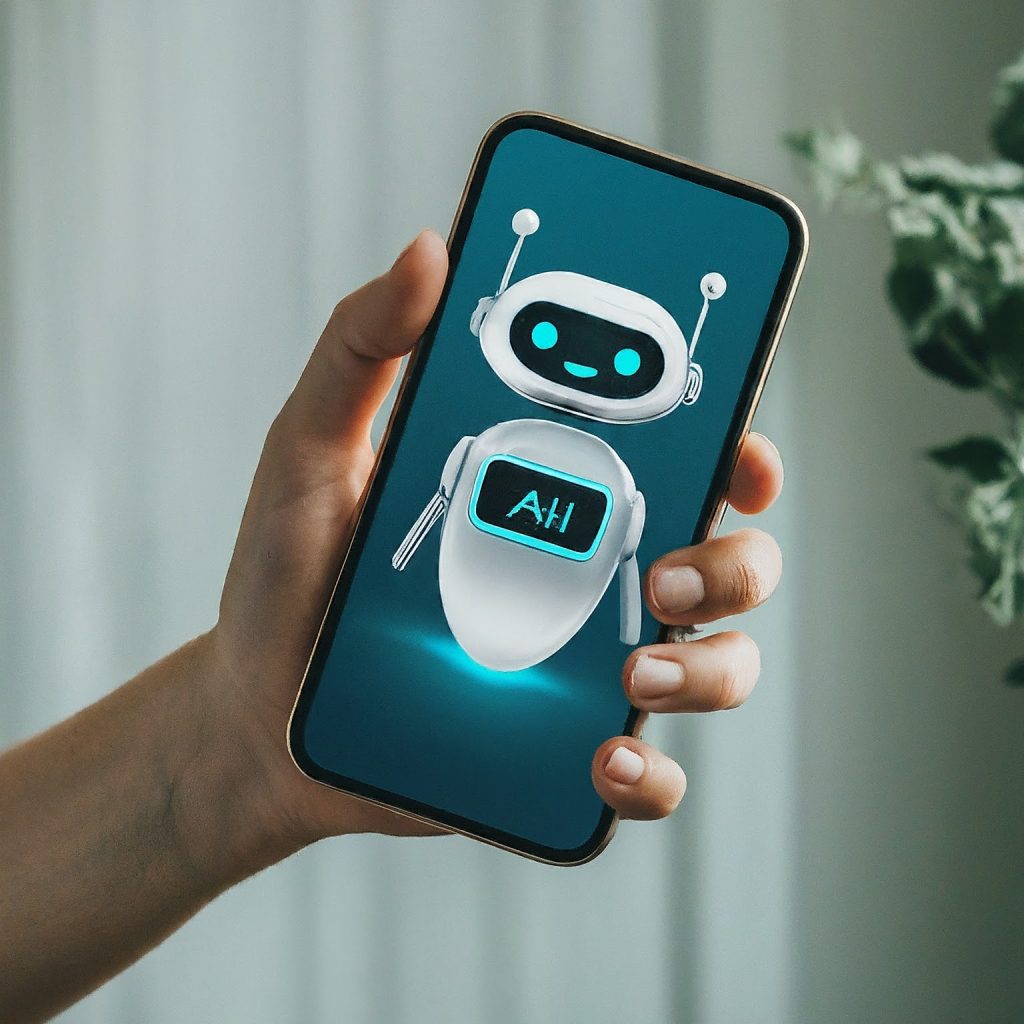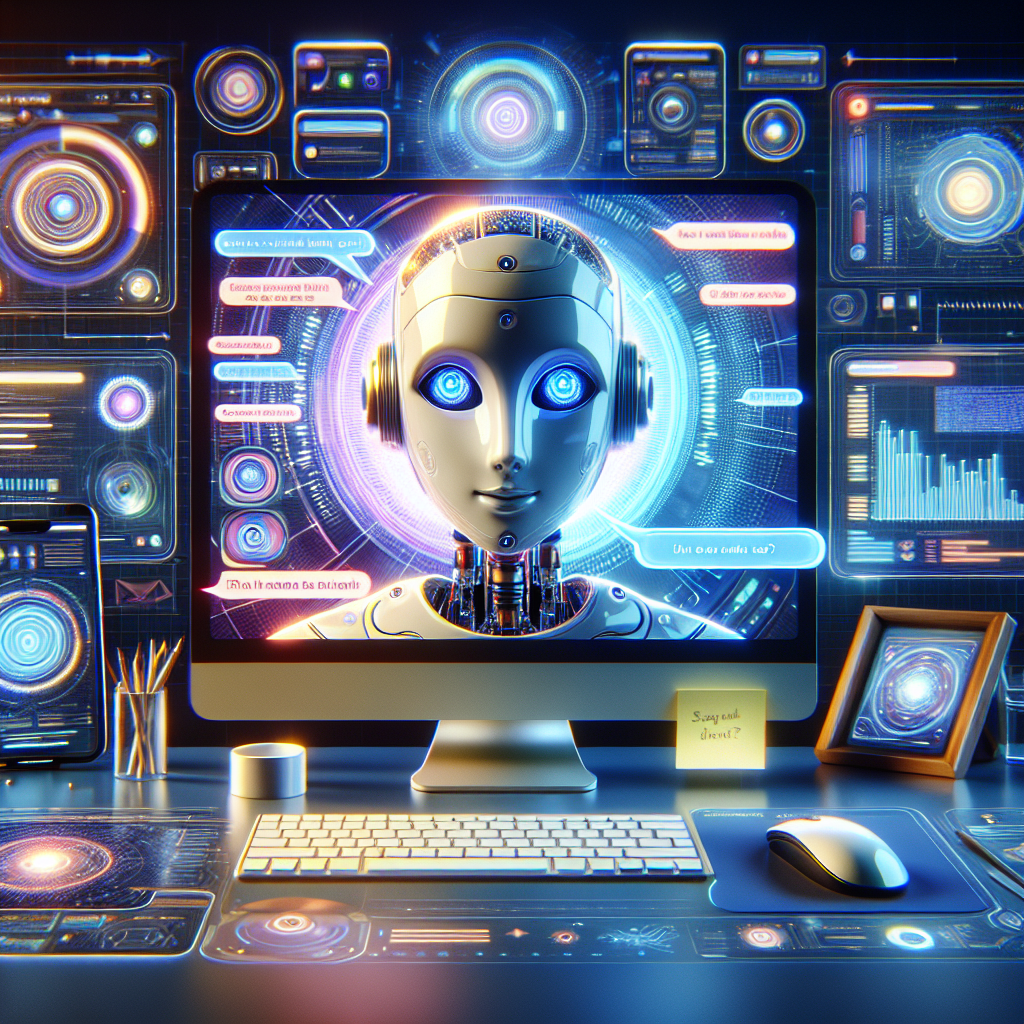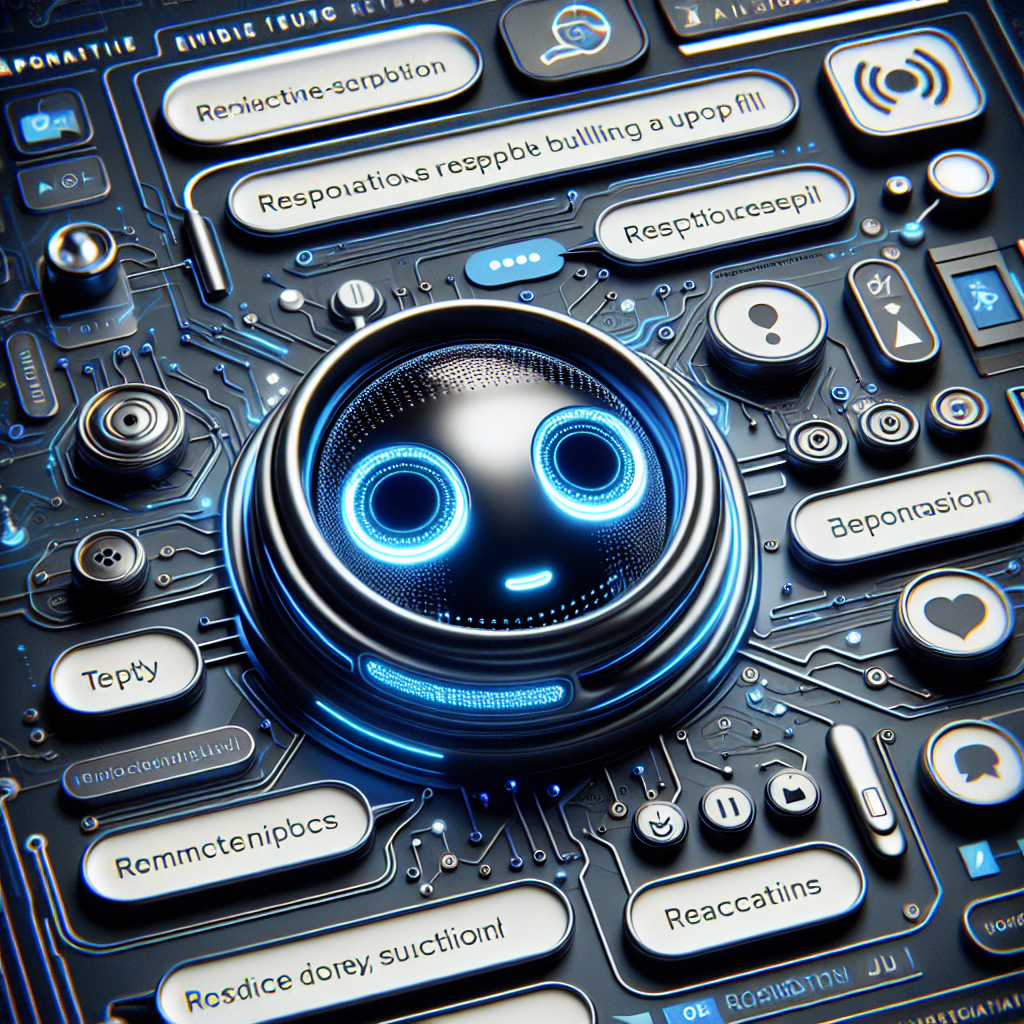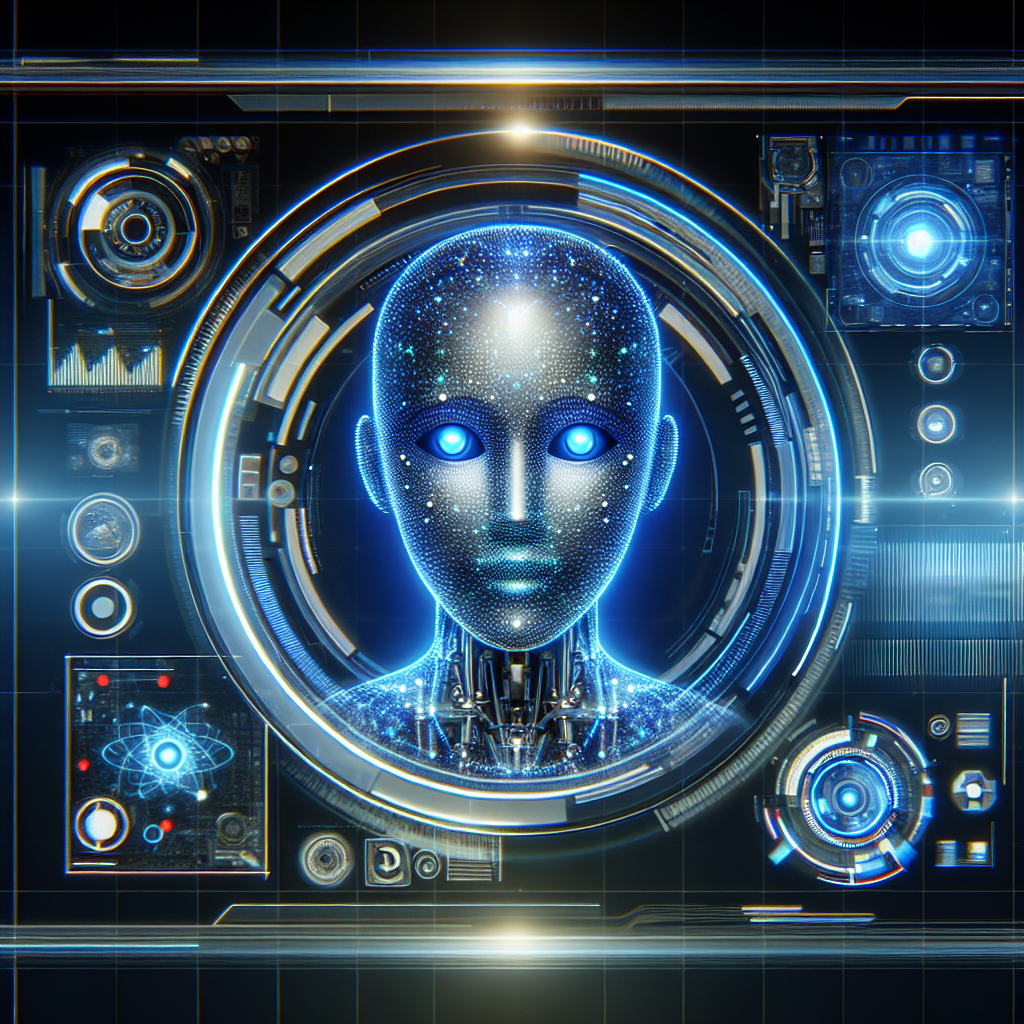
Artificial Intelligence (AI) chatbots are revolutionizing the way businesses interact with their customers. By simulating human conversation through text or voice interactions, AI chatbots provide a personalized experience for users, while offering businesses a tool to enhance customer engagement and automate a range of tasks. In an era where instant communication is valued, these intelligent systems are not just a luxury but a necessity for businesses looking to stay ahead in a competitive landscape.
The integration of AI chatbots goes beyond basic customer service. They are equipped to handle complex queries, assist in sales, provide recommendations, and even gather valuable customer insights. The ai chatbot for business has become an indispensable asset, offering 24/7 support and ensuring that customer needs are met promptly and efficiently. The agility and learning capabilities of AI chatbots allow them to improve over time, becoming more attuned to the nuances of human language and industry-specific knowledge.
If you're eager to harness the potential of AI chatbots for your business, our 'Learn AI Chatbot Course' is the perfect place to begin. This course is designed to empower marketers and agency owners with the knowledge and tools to build sophisticated AI chatbots. Enroll now and take the first step towards transforming your business communications and customer service strategy.
Understanding the Basics of AI Chatbot Technology

To fully appreciate the value that AI chatbots bring to businesses, it's essential to understand the underlying technology. At the core, AI chatbots are powered by Natural Language Processing (NLP) and Machine Learning (ML), which are branches of artificial intelligence. NLP enables chatbots to comprehend and interpret human language, allowing for more natural and fluid conversations. Machine Learning, on the other hand, empowers chatbots to learn from past interactions and improve their responses over time.
These intelligent chatbots operate on a set of algorithms that analyze the text input from users, understand the context, and generate appropriate responses. By leveraging large datasets and continuous learning, they become increasingly sophisticated, eventually being able to manage complex dialogues and perform tasks like booking appointments, answering FAQs, or leading a sales process without human intervention.
The architecture of an AI chatbot can vary depending on its complexity and the tasks it's designed to perform. However, most chatbots will have a few key components in common: a dialogue management system, an NLP engine, a response generation mechanism, and an integration layer that connects the chatbot with various messaging platforms and backend systems.
As businesses seek to create more engaging and conversational experiences for their customers, the role of AI chatbots becomes more central. By mastering these basics, companies can tailor their chatbot strategies to create truly impactful customer interactions that resonate on a personal level.
Top Benefits of Deploying AI Chatbots for Businesses

Deploying AI chatbots in a business setting can result in a multitude of benefits that can significantly enhance operational efficiency and customer satisfaction. One of the primary advantages is the 24/7 availability that chatbots provide, allowing businesses to offer real-time assistance without the constraints of office hours. This is particularly beneficial for global companies dealing with customers across different time zones.
Another key benefit is the scalability of service. AI chatbots can handle a vast number of queries simultaneously, which can dramatically reduce wait times and improve the user experience. This scalability ensures that customer service quality does not diminish during peak times or promotional events when the volume of inquiries can increase exponentially.
Cost reduction is also a significant advantage. By automating routine inquiries, businesses can reduce the workload on human agents, allowing them to focus on more complex issues that require human empathy and decision-making skills. This optimization of resources can lead to considerable savings in labor costs.
Moreover, AI chatbots are an invaluable source of data and insights. They can track user interactions to identify common issues, preferences, and patterns. This data can be used to refine products, services, and customer interactions, leading to more personalized experiences and informed business decisions.
Lastly, when it comes to marketing, AI chatbots can be highly effective in engaging prospects through personalized recommendations and nurturing leads through the sales funnel. By providing immediate responses and relevant information, chatbots can enhance the likelihood of conversion, thereby boosting sales and revenue.
Incorporating AI chatbots into business strategies not only streamlines customer service but also opens up new avenues for growth and customer engagement. With the ever-increasing capabilities of AI, the potential benefits for businesses are set to expand even further.
Customizing Your AI Chatbot to Meet Business Needs
Customization is a crucial factor when integrating an AI chatbot into your business environment, as it ensures that the chatbot aligns with your specific business objectives and customer needs. The process starts with defining the purpose of the chatbot, whether it's for customer support, sales, or another function. Understanding the core goals will guide the customization process.
Once the purpose is clear, the next step is to tailor the conversation flows. This involves designing dialogue trees that are logical, intuitive, and capable of handling a variety of user queries. Crafting responses that reflect the brand's voice and tone is also essential for maintaining a consistent brand identity.
Businesses must also consider the integration of their chatbot with existing systems and databases. This seamless integration allows for personalized and context-aware interactions, where the chatbot can access customer history, preferences, and relevant data to provide a more tailored experience.
Another aspect of customization is the continuous learning and improvement of the chatbot. By leveraging machine learning algorithms, the chatbot can analyze interactions to improve its responses and anticipate user needs more effectively over time.
Additionally, customizing the user interface to match the look and feel of your brand can further enhance user experience. This includes selecting appropriate colors, avatars, and interactive elements that resonate with your audience.
Businesses should also consider the regulatory and compliance requirements specific to their industry when customizing their chatbot. Ensuring that chatbot interactions comply with data protection laws and industry-specific regulations is crucial for maintaining customer trust and avoiding legal issues.
Ultimately, a well-customized AI chatbot can become a powerful tool that not only improves operational efficiency but also strengthens customer relationships by providing a highly personalized and engaging experience.
Step-by-Step Guide to Building Your First Business AI Chatbot

Building your first AI chatbot for business may seem daunting, but with a systematic approach, it can be an achievable task. The initial step is to identify the primary function your chatbot will serve. This could range from handling customer service inquiries to executing sales processes or providing personalized recommendations.
After establishing the chatbot's purpose, the next step is to select the appropriate platform. There are several chatbot development platforms available that cater to different levels of technical expertise and business needs. Choose one that aligns with your technical capabilities and offers the features necessary to fulfil your chatbot's intended role.
With the platform chosen, you must then design the interaction flows. This involves creating the conversation paths that users will take when interacting with your chatbot. It's crucial to map out both common and edge-case scenarios to ensure your chatbot can handle a wide range of interactions.
Scripting the dialogue is another important step. The language and tone should be consistent with your brand, and the responses should be crafted to provide clear, helpful, and engaging interactions. Testing the dialogue in various scenarios will help refine the chatbot's communication skills.
Integrating the chatbot with your existing business systems is necessary for a seamless user experience. Whether it's your CRM, ERP, or a database, this integration allows your chatbot to pull in relevant data and perform actions on behalf of the user.
Before launching, testing and training your chatbot is essential. This process includes running simulations, gathering feedback, and using this information to improve the chatbot's accuracy and user experience.
Finally, after thorough testing, you're ready to deploy your chatbot. Monitor its performance closely, gather user feedback, and continue to make improvements over time. Remember, building a chatbot is an ongoing process that evolves with your business needs and customer expectations.
Future-Proof Your Business with AI Chatbot Integration

As technology continues to advance, the importance of staying ahead in the digital landscape becomes increasingly crucial for businesses. Integrating an AI chatbot is not just about keeping up with trends; it's a strategic move to future-proof your business. AI chatbots enable businesses to automate customer service, enhance engagement, and streamline operations, ensuring they remain competitive in a rapidly evolving market.
Moreover, the adaptability of AI chatbots means they can learn and evolve with your customer's needs. By leveraging machine learning algorithms, chatbots can provide personalized experiences at scale, offering recommendations and support that feel unique to each user. This level of personalization can be a significant differentiator for your brand.
Another aspect is the cost savings that come with automation. AI chatbots can handle a vast number of queries simultaneously, reducing the need for a large customer service team and allowing your staff to focus on more complex and revenue-generating tasks.
Furthermore, the analytics capabilities of AI chatbots provide valuable insights into customer behavior and preferences. These insights can inform business decisions and help tailor marketing strategies to better target your audience.
Incorporating AI chatbots into your business operations is an investment in the longevity and adaptability of your brand. Don't let your business fall behind—embrace the future with AI chatbot integration.
If you're ready to take the first step towards integrating an AI chatbot into your business, our Learn AI Chatbot Course is designed to guide you through the process. Whether you're a marketer or a marketing agency owner, our step-by-step course will equip you with the knowledge to build a powerful AI chatbot tailored to your business needs. Join us today and secure your business's future.






